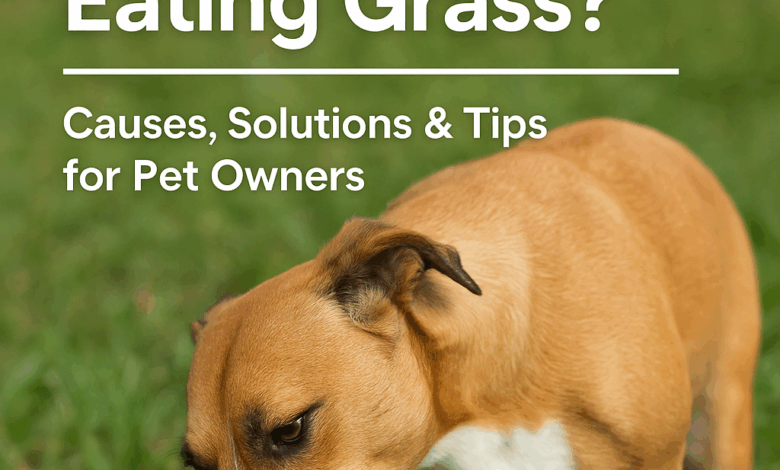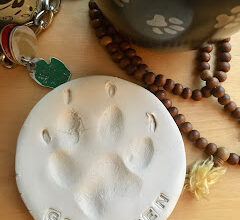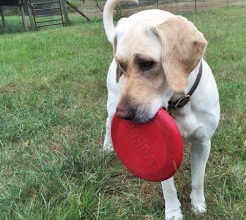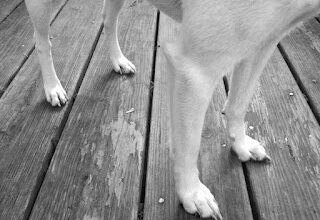Why Is My Dog Eating Grass?

Many dog owners find themselves wondering, “Why is my dog eating grass?” You might worry that it’s a sign of illness or poor diet. However, dogs eating grass is a very common behavior, and in most cases, it’s not something to panic about.
In this blog, we’ll explore why dogs eat grass, the potential causes behind it, whether it’s harmful, and when you should contact a veterinarian. We’ll also cover long-tail keywords to help answer the common questions dog owners search for online.

Is It Normal for Dogs to Eat Grass?
Yes, it’s surprisingly normal for dogs to eat grass. In fact, many veterinarians consider grass eating to be a common canine behavior.
Common Reasons Why Dogs Eat Grass
1. Digestive Relief or Upset Stomach
Some dogs eat grass to induce vomiting if they feel nauseous or have stomach discomfort. This is why many pet owners search online for, “Does my dog eat grass to make itself vomit?”
If your dog eats grass quickly and vomits shortly after, it could indicate a minor digestive issue.
2. Boredom or Anxiety
Dogs are curious by nature, and chewing on grass can simply be a sign of boredom, especially in puppies or dogs left alone for long periods.
Some dogs also chew grass due to anxiety or stress.
3. Natural Instinct
Wild dogs and their ancestors often consumed plants to aid digestion or supplement their diet. Eating grass may be an inherited instinct.
4. Nutritional Deficiency
In some cases, dogs may eat grass if they lack certain nutrients, such as fiber or minerals, in their diet.
5. They Simply Enjoy the Taste or Texture
Some dogs just like the texture or flavor of grass. This can especially happen with fresh, soft grass in spring or after rain.
Is Eating Grass Harmful to Dogs?
Generally, eating small amounts of grass is not harmful. However, if the grass has been treated with pesticides, herbicides, or other chemicals, it can be dangerous.
When Should You Be Concerned?
Contact your vet if:
-
Your dog eats grass excessively and frequently vomits.
-
Your dog shows signs of lethargy, diarrhea, or loss of appetite.
-
You suspect your dog ate chemically treated grass.
How to Stop Your Dog from Eating Grass (If Needed)
Here are some solutions if you want to reduce this behavior:
-
Provide more fiber in their diet through vegetables or vet-recommended supplements.
-
Keep your dog mentally and physically stimulated with interactive toys and regular exercise.
-
Ensure your lawn and garden are free from harmful chemicals.
-
Use commands like “leave it” to discourage eating grass during walks.
Safe Alternatives to Grass
If your dog enjoys munching on grass, try these safe, pet-friendly options:
-
Fresh carrots
-
Green beans
-
Vet-approved chew treats
Final Thoughts: Should You Worry About Your Dog Eating Grass?
In most cases, the answer is no. Occasional grass eating is considered normal behavior for dogs. However, if it’s excessive or linked to digestive issues, it’s best to consult your veterinarian.
✅ Frequently Asked Questions (FAQs)
Q1. Why does my dog eat grass and vomit?
Dogs sometimes eat grass to induce vomiting when they have an upset stomach. This may help them clear their digestive tract naturally. However, if this happens frequently, consult your veterinarian to rule out digestive issues.
Q2. Is it normal for dogs to eat grass every day?
Occasional grass-eating is considered normal, but daily or excessive grass-eating could signal boredom, anxiety, or nutritional deficiencies. If your dog is obsessed with eating grass every day, it’s best to check with your vet.
Q3. How do I stop my dog from eating grass?
Here are some effective ways to reduce grass-eating:
-
Provide more fiber in their diet with healthy vegetables or vet-approved supplements.
-
Keep your dog mentally engaged with toys and regular walks.
-
Use commands like “leave it” during walks.
-
Ensure your backyard or walking area is chemical-free and safe.
Q4. Is eating grass bad for dogs?
Eating grass isn’t inherently harmful, but there are risks if the grass has been sprayed with pesticides or chemicals. Also, if the behavior becomes obsessive, it may point to an underlying health or behavioral issue.
Q5. What is the dog eating grass spiritual meaning?
Some people believe that dogs eating grass has a spiritual meaning, often linked to natural healing or instinctive energy balancing. However, there is no scientific evidence supporting spiritual reasons—most cases are related to physical or behavioral needs.
Q6. What if my dog eats grass and has diarrhea?
If your dog eats grass and experiences diarrhea afterward, it may indicate an upset stomach or digestive irritation. Persistent diarrhea requires veterinary attention, as it could be linked to infections, parasites, or digestive issues.
Q7. Are there home remedies for dogs eating grass?
Yes, you can try natural remedies, including:
-
Adding fiber-rich veggies like carrots or pumpkin to your dog’s meals.
-
Feeding smaller, more frequent meals to prevent hunger-driven grass-eating.
-
Providing safe chew toys or bones to distract your dog from grass.


